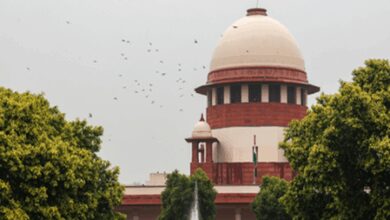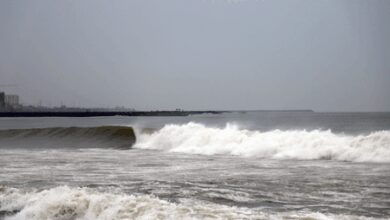Nagpur EVS experts advocate for stricter laws to address climate-related disasters
In an interview with Nagpur Today, Kaustav Chatterjee, founder of Green Vigil Foundation, explained that the only way to combat this scourge is to enact strict laws and penalties.
The World Meteorological Organization has proposed a report that showed some shocking facts that there has been a five-fold increase in the number of climate-weather related disasters globally over the last 50 years, in what could be labeled as “the last signal” in a bid to address global environmental and climate issues.
According to the United Nations (UN) document, over 11,000 such disasters occurred between 1970 and 2019. According to the report, they resulted in “just over 2 million deaths and $3.64 trillion [approximately Rs 266 lakh crore] in losses.”
While the world is facing the wrath of man-made disasters, the Second Capital of the State is undoubtedly not an exception, according to city environmental experts who have pressed for strict law enforcement to curtail climate-weather-related disasters.
In an interview with Nagpur Today, Kaustav Chatterjee, founder of Green Vigil Foundation, explained that the only way to combat this scourge is to enact strict laws and penalties.
“We Nagpurains all have one thing in common: we will not submit to anything until it costs us money. Take, for example, a helmet, which is required when driving and has saved several lives in accidents. We used to feel “the burden” of that life-saving asset when the fine was Rs 100. When the penalties were raised to Rs 500-1000, the same burden began to feel like a blessing! As a result, we have had enough discussion about developing authoritarian measures to control climate-related disasters. I believe there is an urgent need to strengthen the Environmental Protection Law with severe penalties that should be mandatory for violators”, Kaustav further added.
Chatterjee also suggested that aside from planting trees to compensate for our shortcomings, there is little need for disciplinary measures to ensure water penetration in the surrounding area. The administration should also establish a borewell depth limit to allow groundwater to fall further. Alongside rainwater harvesting, a good drainage system, and a prohibition on single-use plastic, can ensure a brighter future for our children.
Chatterjee went on to say that the city’s vertical development, as well as attempts to turn the Second Capital of the State into a “concrete jungle,” are some of the crucial factors which contribute to the city’s environmental crises. He claimed that the groundwater level has reached a new low as a result of multiple borewells, cement roads, and now footpaths, all of which inhibit water penetration.





